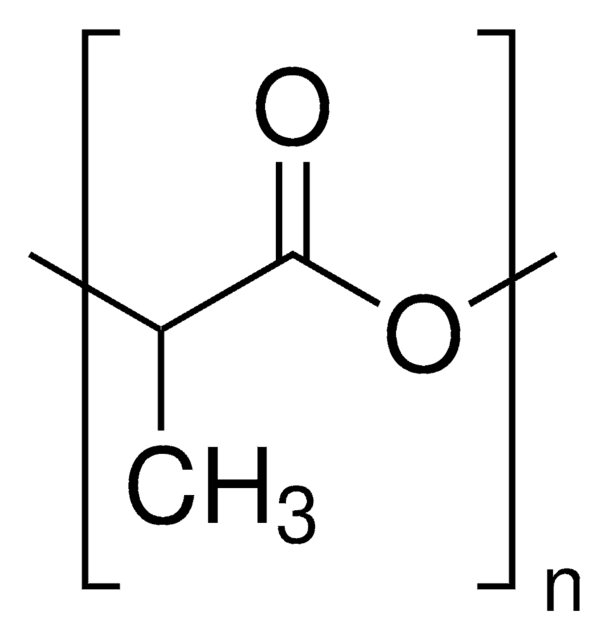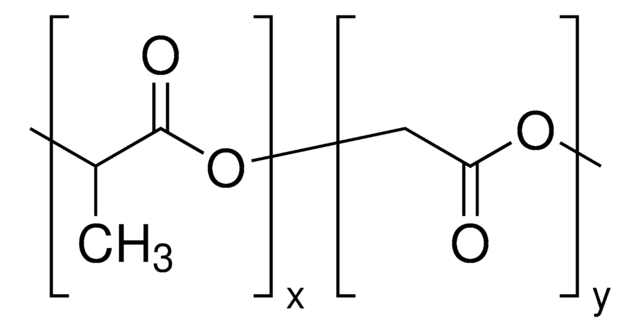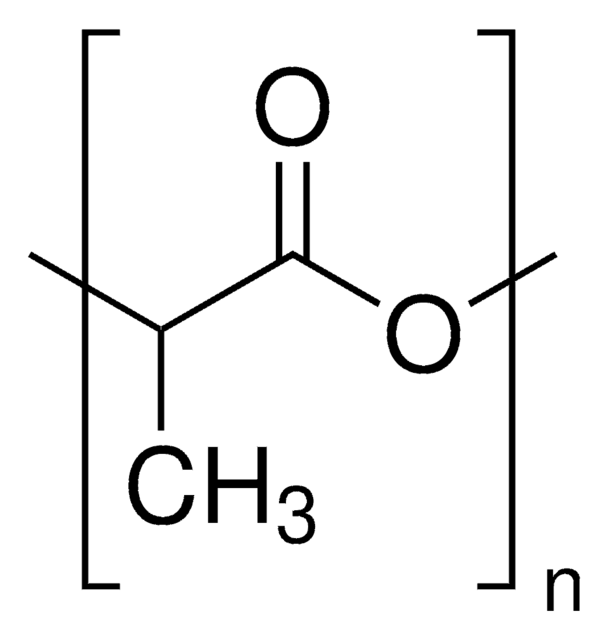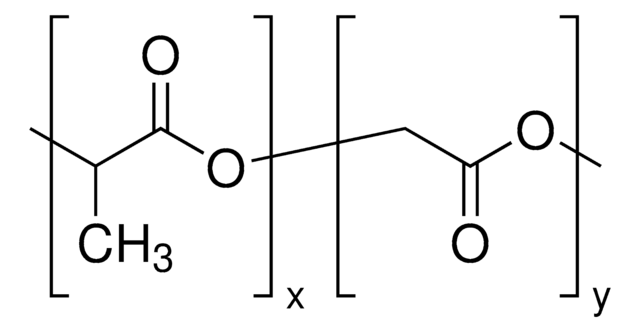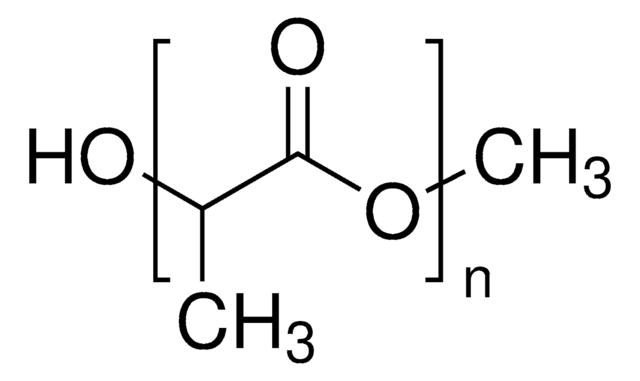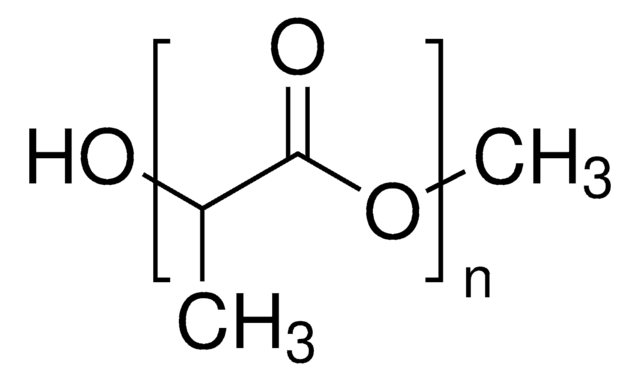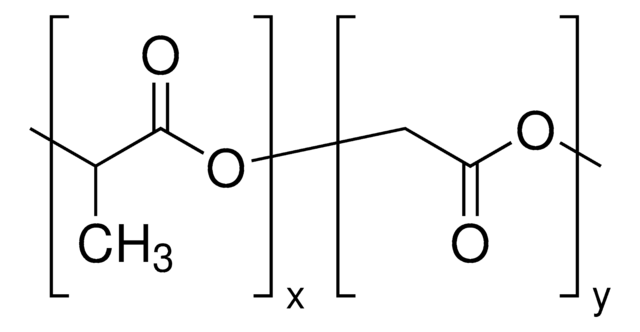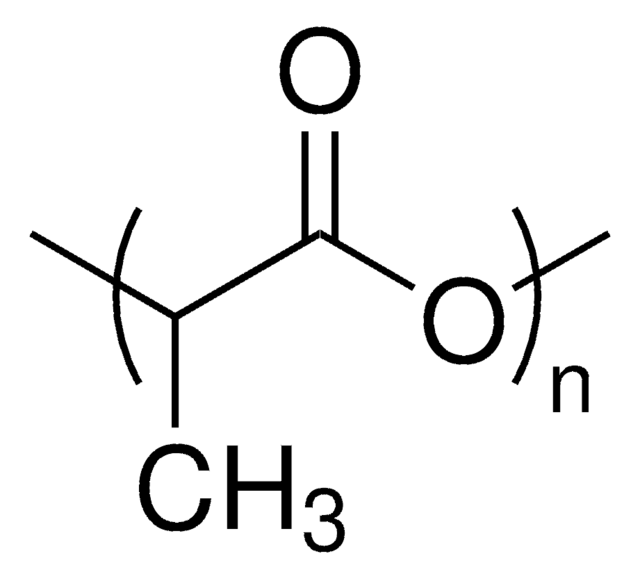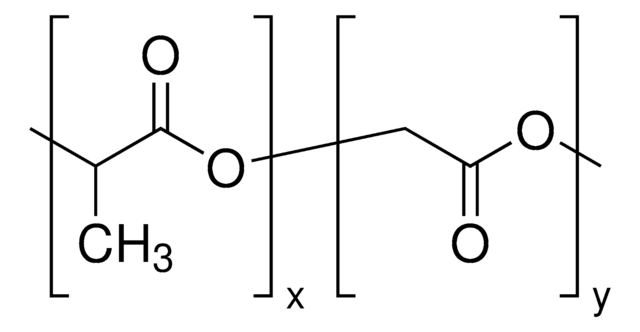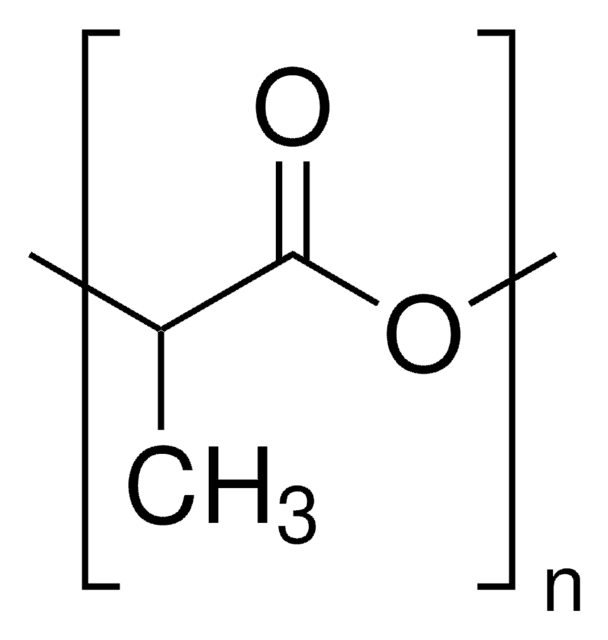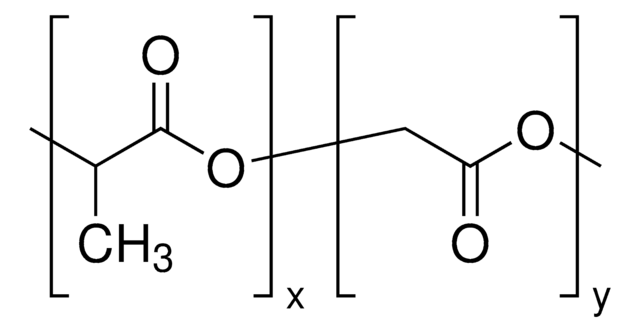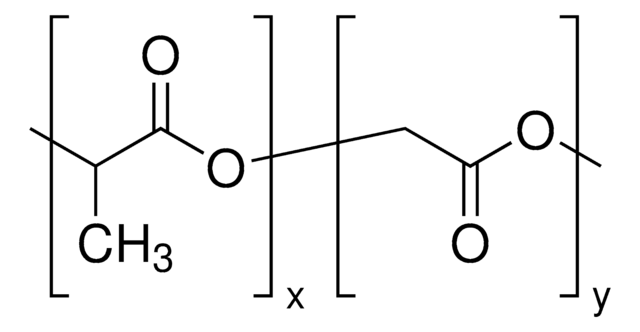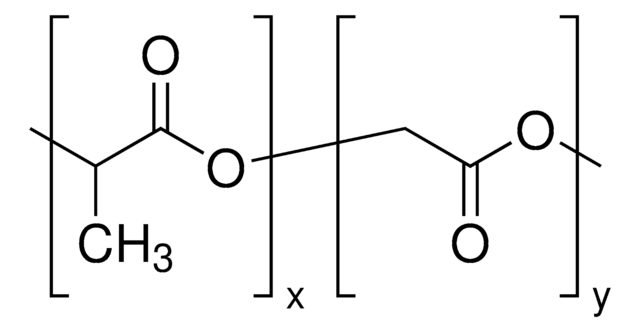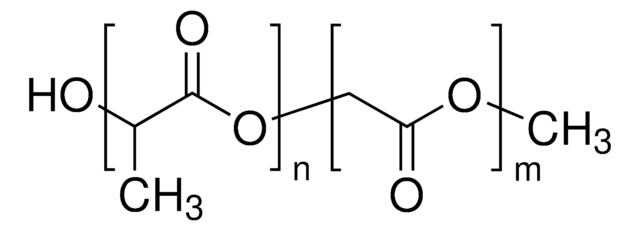719943
Resomer® R 203 H, Poly(D,L-lactide)
acid terminated, Mw 18,000-24,000
Synonym(s):
Lactide polymer, PDLLA, Polylactide
About This Item
Recommended Products
Quality Level
form
amorphous
mol wt
Mw 18,000-24,000
degradation timeframe
<6 months
viscosity
0.25-0.35 dL/g, 0.1 % (w/v) in chloroform(25 °C, Ubbelohde) (size 0c glass capillary viscometer)
transition temp
Tg 48-52 °C
storage temp.
2-8°C
InChI
1S/C6H8O4/c1-3-5(7)10-4(2)6(8)9-3/h3-4H,1-2H3
InChI key
JJTUDXZGHPGLLC-UHFFFAOYSA-N
Related Categories
Application
Legal Information
Storage Class Code
11 - Combustible Solids
WGK
nwg
Choose from one of the most recent versions:
Already Own This Product?
Find documentation for the products that you have recently purchased in the Document Library.
Customers Also Viewed
Articles
Aliphatic polyesters such as polylactide, poly(lactide-co-glycolide) and polycaprolactone, as well as their copolymers, represent a diverse family of synthetic biodegradable polymers that have been widely explored for medical uses and are commercially available.
Aliphatic polyesters such as polylactide, poly(lactide-co-glycolide) and polycaprolactone, as well as their copolymers, represent a diverse family of synthetic biodegradable polymers that have been widely explored for medical uses and are commercially available.
Innovations in polymer technology have had a significant impact on the advancement of novel drug delivery systems.
In the past two decades, tissue engineering and regenerative medicine have become important interdisciplinary fields that span biology, chemistry, engineering, and medicine.
Related Content
Interest in utilizing biodegradable polymers for biomedical applications has grown since the 1960s.
Our team of scientists has experience in all areas of research including Life Science, Material Science, Chemical Synthesis, Chromatography, Analytical and many others.
Contact Technical Service
